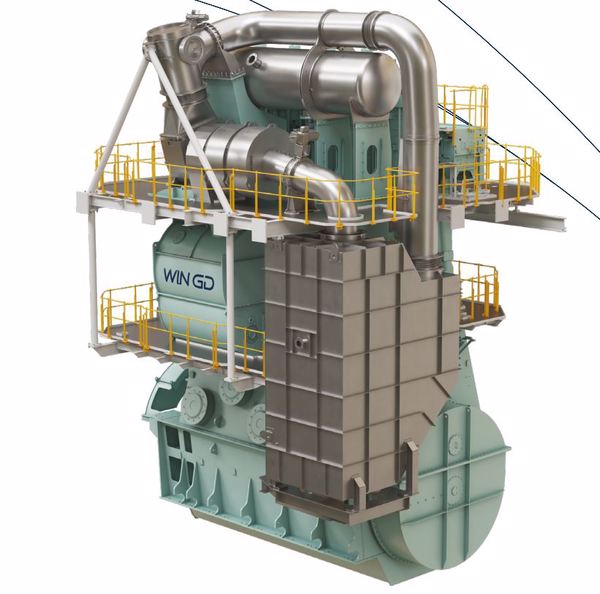Lloyd’s Register greenlights WinGD’s ammonia-fuelled two stroke engines
Classification society Lloyd’s Register has granted approval to Swiss marine engine maker WinGD’s two-stroke engines fuelled with ammonia.
 PHOTO: WinGD's ammonia-fuelled two stroke engine. WinGD
PHOTO: WinGD's ammonia-fuelled two stroke engine. WinGD
The approval has been granted to WinGD’s dual-fuel engine range called ‘X-DF-A’ that will allow shipowners “to realise vessel designs using ammonia-fuelled main engines for the first time,” Lloyd’s Register claims.
The 52 cm-bore version of the engine, which is applicable to a wide range of vessels including gas and bulk carriers, will be available for delivery from the fourth quarter of 2024.
These engines operate according to the Diesel principle in both diesel and ammonia modes.
Principally, diesel engines operate by compressing air to high pressure/temperature and then injecting a small amount of fuel into this hot compressed air. The high temperature causes the small amount of highly atomized injected fuel to evaporate. Mixing with the hot surrounding air in the combustion chamber, the evaporated fuel reaches its auto-ignition temperature and burns to release the energy that is stored in that fuel.
Lloyd’s Register granted the approval after evaluating “the engine safety concept, risk assessments and preliminary engine and fuel supply system design, as well as confirming the compatibility of materials with ammonia fuel.”
WinGD will extend the range with a 72 cm-bore version in 2025, followed by other engine sizes in 2026 according to market requirements, "accommodating a wide range of vessel types from small tankers and car carriers to very large tankers,” Lloyd’s Register says.
“The maritime industry needs to trust that new technologies can be deployed safely as it continues to evaluate multiple transition pathways. This AiP (approval in principle) will give first movers confidence that, subject to subsequent care in design, build, integration and operation, this ammonia two-stroke engine can help meet that demand,” Lloyd’s Register’s chief executive Nick Brown concludes.
By Tuhin Roy
Please get in touch with comments or additional info to news@engine.online






